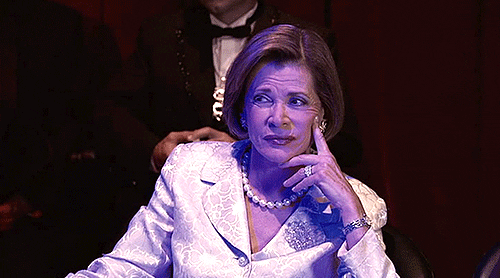Abortion rights, women of color, and LGBTQIA+ people are under attack. Pledge to join us in fighting for gender justice.
How Title IX Guidance Helps Schools Tackle the Growing Problem of Harassment and Sexual Assault
Students across the country, of all ages, are currently savoring the peak of summer. 
Parents, on the other hand, by this point are ready for September to roll around and see their kids go back to school or for some send children off to college. 
The expectation most parents have is that their children will be cared for and safe in their school environments. However, as it has become evident by recent cases at universities across the country including Stanford and Baylor, sexual assault and violence on college campuses is a major issue and colleges are having a difficult time grappling with it.
In response to what has become a growing issue that includes cyberbullying, hazing, harassment of LGBT individuals, as well as sexual violence and assault in schools across the country, the U.S. Department of Education released several Dear Colleague Letters in recent years to provide school districts and higher education institutions with guidance to properly address what can only be summarized as a school climate crisis.
The Dear Colleague letters included a 2010 Letter on Bullying and Harassment, a 2011 Letter on Sexual Violence, and a recent 2016 letter on Transgender Students. The Letters help address the concerns schools have about how to best prevent and address sex discrimination in educational programs. Recently, however, the Department of Education’s guidance has come under attack by some legislators and advocacy organizations. They argue that the guidance distorts Title IX, micromanages school districts and universities, and deprives students of due process.

Unfortunately, this is a misrepresentation of what the issued guidance does. On Wednesday, the National Women’s Law Center with 84 other civil rights, women’s rights and education advocacy groups wrote a letter of support of the Department of Education’s efforts to address sex discrimination in schools across the country. The letter applauds the Department for issuing guidance and clarifying the existing rights for students under Title IX.
Sexual harassment and violence isn’t just seen as a major problem by advocacy groups. It is also recognized as one by both houses of Congress. The same day the letter was released, the National Coalition for Women and Girls in Education (NCWGE) and Honorary Co-Host Rep. Bobby Scott (D-VA) presented a briefing on the impact of sexual harassment and violence at K-12 schools, higher education institutions, including graduate schools, , and on LGBT students. NWLC’s own Neena Chaudhry, Director of Education, spoke on the panel and reiterated that under Title IX, schools have always had the obligation to respond promptly, thoroughly, and fairly to any sexual harassment or assault that they know or should have known about. She commented that while college sexual assault is a major problem, it often overshadows the growing issue of peer-on-peer sexual assault and harassment that plagues K-12 students. This is often because of the lack of data surrounding sexual violence at the K-12 level. Another problem in K-12 schools is that some schools are punishing victims instead of helping them. 
Members of the U.S. Senate Committee on Health, Education, Labor, and Pensions (HELP) also held a roundtable hearing on the same day on campus safety. Testifying witnesses included a security consultant, academics, and parent Jane Clementi who lost her son, Tyler, to suicide after he was mercilessly harassed on his college campus by his peers. Ranking member, Sen. Patty Murray (D-WA), noted that the need for federal action was evident based on the level of anger the Stanford rape case has generated.
Dr. Elizabeth Allan, a professor at the University of Maine, shared a quote from a parent who lost her son to hazing: “I did not expect to send my son off to college and see him come home in a coffin. I have an 18-year-old daughter who will begin college this year and I am worried for her. Not just for hazing, but also for sexual violence and alcohol abuse.”
Jane Clementi also stated the need for federal action to ensure universities are continuously reviewing their current policies. “There needs to be a focus as much on preventative policies as well as response policies,” she said.
Sen. Elizabeth Warren (D-MA) added that the fear of harassment and violence is only amplified for LGBT students. She noted that over 25 percent of students who identify as LGBT report being harassed on college campuses and over 40 percent of transgender students report fearing for their safety.
The briefing and roundtable echoed that bullying, sexual harassment, and sexual assault in schools and universities are major problems today’s students face. Many students who are victimized or marginalized do not know where to turn to or are worried about the repercussions of coming forward. In issuing Title IX guidance letters, the Department of Education continues to help in the effort to ensure that sex discrimination is addressed in schools across the country.




